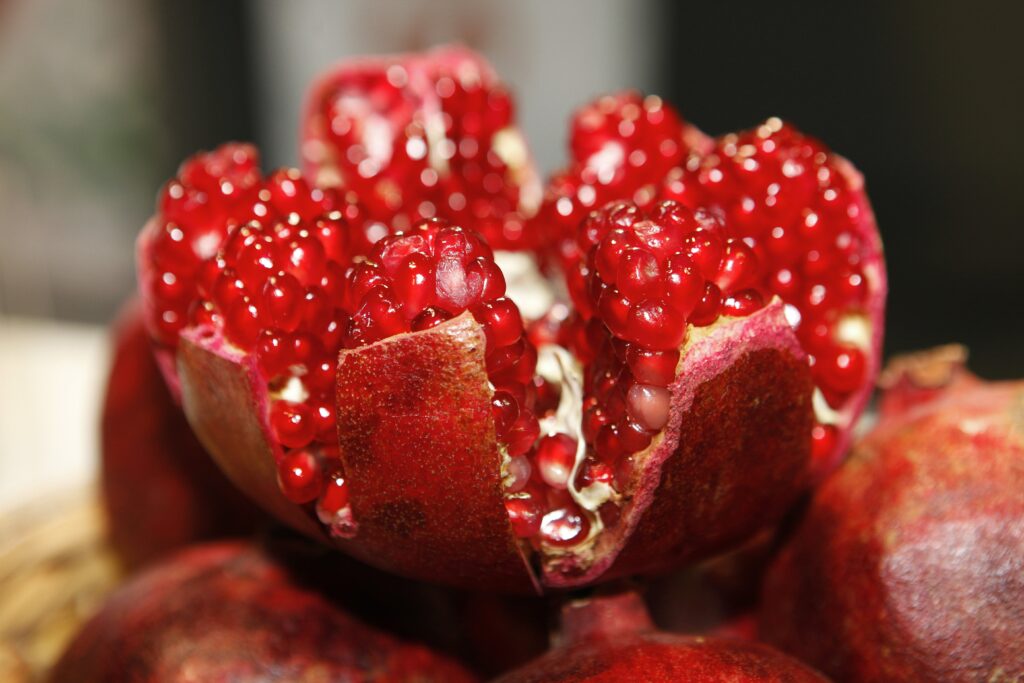The search for the 10 best semen producing foods is crucial in the journey towards enhanced fertility and reproductive health. Diet plays an indispensable role in this quest, leading to the discovery of a range of nutrient-rich foods. These foods are not just beneficial for increasing sperm count and improving its quality, but also play a significant role in overall health and wellness. In this blog post, we will explore the potent benefits of specific foods such as oysters, dark chocolate, bananas, and more. Each of these foods is loaded with essential nutrients that are key in boosting male fertility. Let’s dive into how these natural wonders can be powerful allies in improving semen production and enhancing reproductive health.
Table of Contents

Oysters: A Zinc Powerhouse Boosting Testosterone and Sperm Production
Oysters, often celebrated as a delicacy, are much more than a gourmet’s delight. They are a powerhouse of zinc, an essential mineral playing a pivotal role in boosting testosterone levels and enhancing sperm production. This link between oysters, zinc, and male reproductive health is not just a culinary myth but is backed by scientific evidence, making these mollusks a key food for men’s health.
Zinc is crucial for various bodily functions, including DNA synthesis, cell division, and immune system performance. In the realm of reproductive health, it stands out for its significant impact on testosterone production. Testosterone, the primary male sex hormone, is instrumental in developing male sexual characteristics and maintaining muscle mass, bone density, and overall health. Oysters contain more zinc per serving than any other food, making them an excellent natural supplement for boosting testosterone levels.
Furthermore, zinc‘s role in sperm production is equally noteworthy. It has been found that even a mild deficiency in zinc can result in reduced semen volume and testosterone levels. Regular consumption of zinc-rich oysters can aid in improving sperm quality and quantity. This is particularly beneficial for men facing fertility challenges.
Additionally, the antioxidants in oysters, like selenium and vitamin E, contribute to the protection of sperm cells from oxidative damage. This is crucial because oxidative stress is a known cause of reduced sperm quality and can lead to infertility issues.
Oysters also embody a holistic approach to health. They are low in calories yet high in protein, making them an excellent choice for a balanced diet. Their omega-3 fatty acids contribute to heart health and overall well-being, showing that their benefits extend far beyond reproductive health.

Dark Chocolate: The Sweet Boost for Male Fertility
Dark chocolate, often revered as a guilty pleasure, harbors a secret ingredient that might interest men looking to enhance their fertility: L-arginine HCL. This amino acid is a game-changer in the world of reproductive health, known for its potential to increase semen volume and sperm count.
L-arginine HCL, present in dark chocolate, plays a pivotal role in sperm production. It serves as a precursor to nitric oxide, a compound that improves blood circulation. This improvement in blood flow is not just beneficial for overall cardiovascular health but is also crucial for efficient sperm production and function.
Moreover, the antioxidants in dark chocolate, specifically flavonoids, contribute to the overall health of sperm by reducing oxidative stress, a known factor in decreased sperm quality. These antioxidants protect the delicate sperm cells, ensuring their health and vitality.
What makes dark chocolate an appealing choice is its balance of health benefits and indulgence. It’s a delicious way to incorporate vital nutrients into your diet without feeling deprived. However, moderation is key as dark chocolate is also high in calories and fat.
Incorporating dark chocolate into a balanced diet can be a delightful and effective way to potentially enhance male fertility. It’s a sweet approach to boosting not just the spirit but also the vital aspects of reproductive health.

Bananas: A Nutrient-Rich Boost for Healthier Sperm
Bananas, a staple in many diets around the world, are not only a convenient snack but also a treasure trove of nutrients essential for reproductive health. Rich in vitamins B1, A, and C, bananas are increasingly recognized for their role in producing healthier sperm and improving sperm productivity.
Vitamin B1, also known as thiamine, plays a crucial role in the overall health and vitality of the body. For sperm, it is particularly important in maintaining energy levels and ensuring optimal functionality. Vitamin A is vital for sperm production and can help improve sperm’s ability to fertilize an egg. Meanwhile, Vitamin C, a powerful antioxidant, protects sperm cells from oxidative stress and damage, which can lead to infertility.
Bananas are also rich in other essential nutrients like potassium and magnesium, which contribute to overall health and well-being. Potassium is crucial for nerve function and muscle control, which can impact reproductive health. Magnesium, on the other hand, is known for its role in hormone regulation.
The benefits of bananas extend beyond just their vitamin content. They contain a rare enzyme called Bromelain, which is believed to boost libido and male potency. Additionally, the high fiber content in bananas supports digestive health, further enhancing nutrient absorption and overall health.
Incorporating bananas into a balanced diet is a simple yet effective way to support reproductive health. Their natural sweetness and versatility make them an ideal choice for a health-conscious diet, providing not just a quick energy boost but also long-term benefits for sperm health and productivity.

Walnuts: A Nutty Solution for Enhancing Male Fertility
Walnuts, a common ingredient in various cuisines, are more than just a crunchy addition to your diet. They are packed with omega-3 fatty acids, essential fats that play a significant role in boosting sperm volume and production. This natural benefit stems from the ability of omega-3s to enhance blood flow, particularly to the testicles, which is crucial for healthy sperm development.
The omega-3 fatty acids found in walnuts are known to improve the fluidity of cell membranes, which is vital for sperm cells. This improved cell structure not only enhances sperm motility but also contributes to its overall health and ability to fertilize an egg. Moreover, these fatty acids are instrumental in reducing inflammation and oxidative stress in the body, factors that are known to adversely affect sperm quality.
Additionally, walnuts are a source of other nutrients beneficial for reproductive health, such as zinc and selenium. Zinc is essential for testosterone production, a hormone closely linked to sperm production and libido. Selenium, on the other hand, is known for its antioxidant properties, protecting sperm cells from damage and boosting their vitality.
Incorporating walnuts into one’s diet is a delicious and natural way to potentially improve male fertility. Whether eaten as a snack, sprinkled on salads, or used in baking, walnuts offer a convenient and tasty avenue to enhance reproductive health. Regular consumption of these nutrient-rich nuts can be a proactive step towards maintaining not just general well-being but also a healthy reproductive system.

Spinach: A Leafy Green Enhancing Sperm Health
Spinach, a versatile and nutrient-rich leafy green, stands out as a vital food for male fertility. Its high content of folic acid, a type of B vitamin, plays a critical role in improving sperm count and quality, making it an essential component of a fertility-boosting diet.
Folic acid, or folate, is crucial for the production and maintenance of new cells, including sperm cells. It contributes to the formation of DNA and RNA, the genetic material in cells, and is particularly important in periods of rapid cell division and growth such as in sperm production. A deficiency in folic acid has been linked to lower sperm counts and decreased sperm quality, highlighting the importance of including folate-rich foods like spinach in the diet.
Moreover, spinach is rich in other vital nutrients that support overall health and fertility. It contains antioxidants like vitamins C and E, which help protect sperm cells from oxidative stress and damage. Additionally, the high levels of zinc in spinach are essential for testosterone production, a key hormone in male fertility.
The versatility of spinach makes it easy to incorporate into various meals, from salads and smoothies to omelets and pasta dishes. Regular consumption of spinach can not only aid in boosting sperm health but also contribute to overall physical well-being.

Eggs: A Nutritional Powerhouse for Enhanced Sperm Health
Eggs, a staple in many diets worldwide, are not just a versatile and affordable source of protein but also a significant contributor to male reproductive health. Rich in essential nutrients like vitamin E and protein, eggs play a key role in improving sperm count and motility.
Vitamin E, a potent antioxidant found in eggs, is crucial for protecting sperm cells from oxidative damage. Oxidative stress can lead to a decrease in sperm quality, affecting both their motility (ability to move) and overall health. By safeguarding the sperm’s cell membrane, vitamin E ensures that the sperm are healthy and capable of successful fertilization.
Protein, another vital nutrient abundant in eggs, is essential for the production of sperm. Proteins are the building blocks of cells, and their adequate supply is necessary for the proper formation and function of sperm. The high-quality protein found in eggs supports the growth and health of sperm cells, contributing to a higher sperm count and improved motility.
Moreover, eggs are a source of other key nutrients beneficial for sperm health, such as selenium and zinc. Selenium aids in sperm formation, while zinc is crucial for testosterone production and sperm development.
Incorporating eggs into one’s diet is a simple yet effective way to support reproductive health. They can be prepared in a variety of ways, making them a convenient and versatile option for enhancing fertility through nutrition.

Garlic: A Natural Booster for Male Reproductive Health
Garlic, a common ingredient in cuisines worldwide, holds significant benefits for male reproductive health. Its key component, allicin, is a powerful compound believed to enhance blood flow to sexual organs and safeguard sperm from damage.
Allicin, released upon crushing or chopping garlic, is known for its blood-thinning and circulation-enhancing properties. Improved blood flow is crucial for overall sexual health and function, including the efficient delivery of nutrients and oxygen to the sexual organs. This enhanced circulation is particularly beneficial for the testicles, where healthy blood flow is essential for optimal sperm production and function.
Beyond improving blood flow, allicin in garlic has potent antioxidant properties. These antioxidants play a crucial role in protecting sperm cells from oxidative stress, a known cause of reduced sperm quality and fertility issues. By neutralizing harmful free radicals, allicin ensures the health and integrity of sperm, increasing their viability and potency.
Garlic is also rich in other nutrients beneficial for reproductive health, such as selenium and vitamin B6. These elements further contribute to sperm health and protect against abnormalities.
Incorporating garlic into one’s diet is an effective, natural way to support male fertility. Whether used in cooking or consumed as a supplement, garlic offers a range of benefits for reproductive health. Its ability to improve blood flow and protect sperm makes it an invaluable addition to a health-conscious diet, particularly for those focused on enhancing fertility.

Carrots and Sweet Potatoes: Vitamin A-Rich Foods for Enhanced Sperm Motility
Carrots and sweet potatoes, vibrant in color and rich in nutrients, play a crucial role in male reproductive health, thanks to their high Vitamin A content. Vitamin A is renowned for its ability to improve sperm motility, a key factor in male fertility.
Sperm motility, the ability of sperm to move efficiently, is essential for successful fertilization. Vitamin A in carrots and sweet potatoes enhances this motility, thereby increasing the chances of conception. This vital nutrient is involved in the production of healthy sperm by maintaining the lining of the reproductive organs and promoting the development of mature, functional sperm cells.
Beyond improving sperm motility, Vitamin A is a powerful antioxidant. It helps protect sperm cells from oxidative damage caused by free radicals, which can lead to reduced fertility. This protective action ensures the health and integrity of sperm, further enhancing fertility prospects.
Carrots and sweet potatoes are also packed with other beneficial nutrients, including fiber, vitamins C and B6, and potassium. These elements contribute to overall health, which is intrinsically linked to reproductive health. The high fiber content aids in digestion and nutrient absorption, while potassium is essential for nerve function and muscle control.
Incorporating these vegetables into one’s diet is simple and versatile. They can be enjoyed raw, roasted, boiled, or as part of various dishes, making them a convenient and delicious way to boost fertility.

Pomegranate: A Fruit Powerhouse for Male Fertility
Pomegranate, a fruit acclaimed for its health benefits, holds a special place in the realm of male fertility. Known for its deep red arils bursting with flavor, pomegranate is often linked to improved sperm quality and higher sperm count.
This juicy fruit is packed with antioxidants, particularly polyphenols, which play a significant role in protecting sperm from oxidative stress. Oxidative stress can damage sperm DNA, leading to reduced fertility. The antioxidants in pomegranate ensure the health and vitality of sperm cells, contributing to better sperm quality.
Moreover, pomegranate is rich in vitamin C, vitamin K, folate, and potassium, all of which are essential for overall health and, by extension, reproductive health. Vitamin C, for instance, enhances sperm motility and keeps them from clumping together, thereby improving their ability to fertilize an egg.
Studies have shown that regular consumption of pomegranate juice can increase testosterone levels, a key hormone in male fertility. Higher testosterone levels are associated with increased sexual desire and improved sperm production.
Including pomegranate in the diet can be both enjoyable and beneficial. Whether consumed as fresh fruit, juice, or as an ingredient in salads and desserts, pomegranate offers a delectable way to enhance fertility.

Pumpkin Seeds: A Zinc-Rich Snack for Boosting Sperm Production
Pumpkin seeds, often overlooked as a simple snack, are in fact a nutritional powerhouse, especially beneficial for male reproductive health. Like oysters, pumpkin seeds are exceptionally high in zinc, an essential mineral that plays a crucial role in sperm production and overall male fertility.
Zinc is vital for numerous aspects of male reproduction, including testosterone synthesis, sperm formation, and sperm motility. A deficiency in zinc can lead to decreased testosterone levels and reduced sperm quality. The high zinc content in pumpkin seeds helps ensure adequate levels of this crucial mineral, supporting healthy sperm production and improving fertility.
Apart from zinc, pumpkin seeds are also a good source of other beneficial nutrients such as magnesium, antioxidants, and essential fatty acids. Magnesium plays a role in over 300 enzymatic reactions in the body, including those involved in the production of DNA and RNA, crucial for healthy sperm. Antioxidants in pumpkin seeds help protect sperm cells from oxidative damage, enhancing their quality and viability.
Pumpkin seeds are not only nutritious but also versatile and delicious. They can be eaten raw, roasted, or added to salads, yogurt, and baked goods, making them an easy addition to a balanced diet.
Conclusion
The journey towards improved male fertility can be greatly supported by nature’s bounty. Foods like oysters, dark chocolate, bananas, walnuts, spinach, eggs, garlic, carrots, sweet potatoes, pomegranates, and pumpkin seeds are not just nourishing; they are packed with specific nutrients that play a crucial role in enhancing sperm count, motility, and overall reproductive health.
The key lies in the diverse range of vitamins, minerals, and antioxidants these foods provide. Elements like zinc, folic acid, omega-3 fatty acids, and various vitamins work synergistically to improve sperm quality and protect them from damage, while also boosting overall health and wellness.
Incorporating these foods into a balanced diet is a natural and effective approach to boosting male fertility. It’s a testament to the power of nutrition and how it can play a pivotal role in addressing fertility issues. While dietary changes alone are not a cure-all for fertility challenges, they can be an integral part of a holistic approach to reproductive health.
It’s also important to remember that lifestyle factors such as exercise, stress management, and avoiding harmful substances play a significant role in fertility. So, let your diet be your ally on the path to improved reproductive health and overall vitality.




